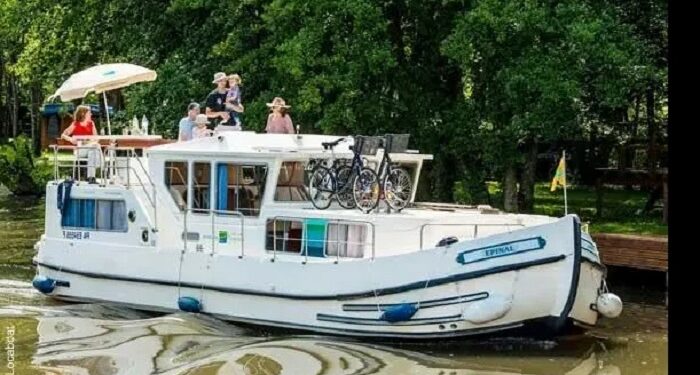In today’s fast-paced world, speed often defines travel. Airplanes whisk us across continents in hours, while high-speed trains and highways reduce journeys to mere commutes. Yet there’s a growing movement toward slowing down—savoring the process of travel itself rather than rushing to the destination. Few experiences embody this philosophy as well as traveling by boat. The rhythm of the waves, the vast expanse of the horizon, and the simple act of moving with the elements remind us of a different pace of life.
Still, while boat travel encourages relaxation, it also demands respect. Safety on the water is just as important as the serenity it offers. Essential equipment such as Fire Extinguishers plays a critical role in ensuring peace of mind while embracing the art of slow journeys.
The philosophy of slow travel
Slow travel is about more than time; it’s about depth. When you choose to journey by boat, you accept that the voyage itself is part of the adventure. Unlike flying, where travelers are confined to a seat with little interaction with their environment, boating immerses you in the surroundings.
Each moment—the rising sun reflecting off calm seas, the sudden shift of wind filling the sails, or dolphins swimming alongside the bow—becomes a treasured experience. The slower pace allows travelers to connect not only with nature but also with themselves, free from the distractions of modern life.
Boat travel across cultures
For centuries, people have used boats not just for transportation but as lifelines that connected communities and cultures. From traditional dhows crossing the Indian Ocean to canoes gliding through Pacific lagoons, boat travel has always encouraged patience and adaptability. These cultural roots are part of what makes slow journeys at sea so enriching today.
When you travel by boat, you’re tapping into a tradition that values resilience, awareness of nature, and respect for the power of water.
The role of safety in relaxation
Ironically, the key to enjoying a slow journey is preparation. Knowing that your vessel is well-equipped allows you to relax fully. Among the most vital pieces of equipment are reliable Fire Extinguishers. Fires may not seem like an obvious risk at sea, but boats carry flammable materials such as fuel, cooking supplies, and electrical wiring. A well-placed, functional extinguisher can prevent a small accident from turning into a disaster.
Boat owners and travelers should regularly check expiration dates, storage locations, and accessibility of their extinguishers. Safety precautions like these ensure that the joy of a slow journey isn’t interrupted by preventable emergencies.
Living at the pace of water
Water has its own rhythm—sometimes calm, sometimes unpredictable. Traveling by boat teaches patience and acceptance of this rhythm. Delays caused by weather or changes in route are common, but instead of being inconveniences, they become part of the story.
Anchoring overnight in a quiet cove because of strong winds may give you the chance to discover a hidden beach or watch a breathtaking sunset. This unpredictability makes boat travel distinct from rigid schedules on land. The sea teaches you to let go of control and appreciate the beauty of going with the flow.
Environmental awareness
Another advantage of slow boat journeys is the closer relationship with nature. Moving across the water at a measured pace makes you more aware of marine life, ecosystems, and your impact on them. Slow travel encourages more sustainable practices, from conserving fuel to minimizing waste.
This connection also reinforces the importance of being prepared. A fire at sea not only endangers passengers but also risks harm to fragile ecosystems. Having Fire Extinguishers onboard is both a personal safety measure and a way to reduce environmental damage in case of accidents.
The joy of community on the water
Boat journeys often bring people together. Whether on a family sailing trip, a river cruise, or an expedition with friends, the confined space and shared rhythm create strong bonds. Meals are shared, tasks are divided, and stories are exchanged as the journey unfolds.
This sense of community is enhanced by trust—trust in each other and in the vessel’s safety. Knowing that essential equipment like Fire Extinguishers is in place contributes to the comfort of everyone onboard. It assures travelers that they can focus on the adventure and companionship without worry.
A sensory experience
Unlike fast travel, which often dulls the senses, slow journeys by boat awaken them. You hear the constant music of waves and wind, feel the sun and salt on your skin, and see the ever-changing colors of the sea. Time seems to stretch, offering space to reflect, read, or simply watch the world drift by.
For many, this immersion is deeply therapeutic. It counters the stress of modern schedules, reminding us of simpler, more natural rhythms.
Challenges and rewards
Of course, boat travel comes with challenges—navigating changing weather, maintaining the vessel, and ensuring supplies last the journey. But these challenges are part of the reward. Overcoming them builds resilience and heightens appreciation for the experience.
Preparedness, again, is crucial. Alongside charts and radios, Fire Extinguishers are part of the essential toolkit for addressing unexpected situations. They symbolize the balance between freedom and responsibility that defines boating.
Conclusion
Traveling by boat is more than transportation—it’s a mindset. It’s about choosing to experience the journey as fully as the destination, embracing the pace of water, and finding joy in simplicity. The philosophy of slow travel is perfectly embodied on the sea, where every wave and horizon becomes part of the adventure.
Yet this slow and fulfilling experience is only possible when safety is assured. Equipping vessels with reliable Fire Extinguishers ensures that travelers can surrender to the rhythm of the water without fear. In this balance of preparation and presence, boating becomes the ultimate slow journey—one that nourishes the soul while respecting the sea.









